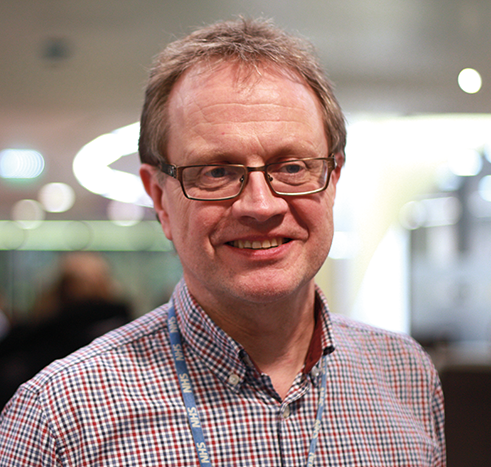Speakers & Topics
Browse the confirmed topics and presentations below, featuring expert speakers across clinical care, diagnostics, research, and lived experience.
We are honoured to welcome two of the fields most influential pioneers, Professor Keith Hyland and Professor Simon Heales, for a joint keynote reflecting on decades of discovery, collaboration, and impact in the diagnosis and understanding of neurotransmitter disorders. Their combined contributions have shaped the very foundations of neurotransmitter testing and care, inspiring generations of clinicians and researchers globally. Together, they offer a unique perspective on the past, present and future of this evolving field - and remind us of the power of science driven by dedication, curiosity and compassion
Session 1
An Overview of Neurotransmitter Disorders
Prof. Manju Kurian Neurotransmitter Disorders:
Clinical Overview of Neurotransmitter Disorders
Prof. Keith Hyland Keynote lecture:
A Lifetime of Discovery in Neurotransmitter Disorders
Prof. Thomas Opladen:
The iNTD Registry: A 2025 update
Session 2
Advances in Laboratory Diagnostics: Biochemical and Genetic Testing
Dr Alpa Dherai:
Analytical Method Validation for CSF Monoamine HPLC Analysis: Experience from an Indian Centre
Prof. Rafa Artuch:
CSF HVA and 5-HIAA in the Pediatric Population: Clinical Impact of Continuous Reference Intervals
Dr Simon Pope:
The Utility of Mass Spectrometry in CSF Metabolite Biomarker Analysis
Dr David Bick:
UK Newborn Genomic Screening for Neurotransmitter Disorders: The Generation Study
Prof. Nenad Blau:
The Spectrum of DDC variants in AADC deficiency: Insights into Genetic Mechanisms
Discussion
Session 3
Selected Oral Presentations
Oral Presentations Selected from Submitted Abstracts
Session 4
Monoamine Neurotransmitter Disorders - Expanding Diseases and Phenotypes
Dr Reem Alkhater & Dr Birgit Assmann:
The Emerging Role of Monoamine Transportopathies in Human Disease
Prof. Yair Anikster:
DNAJC12 deficiency: Expanding Genotype, Phenotype and Emerging Disease Mechanisms
Prof. Simon Heales:
Secondary Neurotransmitter Disorders: Laboratory Insights
Dr Tessa Wassenberg
Secondary Neurotransmitter Disorders: Clinical Phenotypes
Discussion
Session 5
Vitamins, GABA and Glycine Disorders
Prof. Nick Greene & Dr Simon Pope:
Disorders of Cerebral Folate Deficiency: Genotypes, Phenotypes, Pathogenesis, Laboratory
Prof. Peter Clayton & Prof. Philippa Mills:
Disorders of B6 Metabolism: Genotypes, Phenotypes, Pathogenesis, Laboratory
Prof. Philip Pearl:
Translational Arc for GABA Disorders
Prof. Johan Van Hove
An Update on Glycine Metabolism
Session 6
Disease Modelling for Monoamine Neurotransmitter Disorders
Prof. Mita Bertoldi:
In Silico and in Vitro Modelling for AADC Deficiency: Functional Insight into Disease Mechanisms
Dr Serena Barral:
Advanced iPSC-based Disease Modelling for Neurotransmitter Disorders
Prof. Jo Ng:
Preclinical Novel Therapy Development for Primary and Secondary Neurotransmitter Disorders
Session 7
Workshop for Clinical Cases and Videos
Clinical Case Discussions
Meet the Experts
Session 8
Selected Oral Presentations
Oral Presentations
Session 9
Established and Novel Therapies for Neurotransmitter Disorders
Dr Roser Pons:
Treatable Neurotransmitter Disorders
Dr Sam Shribman:
Treating Adults with Neurotransmitter Disorders
Prof. Thomas Opladen:
Gene Therapy for AADC deficiency: Long Term Outcomes with Putaminal Targeting
Dr Toni Pearson Gene:
Therapy for AADC deficiency: Long Term Outcomes with Midbrain Targeting
Session 10
Neurotransmitter Workshop for Patient and Audience Engagement and Involvement
Interactive Patient & Audience Session:
Focused on Neurotransmitter Diagnostics, Prognostics, Therapeutics and Identifying Patient Priorities
More on this to follow...
"This workshop has been made possible in part by grant 2024-347839 from the Chan Zuckerberg Initiative DAF, an advised fund of Silicon Valley Community Foundation."




